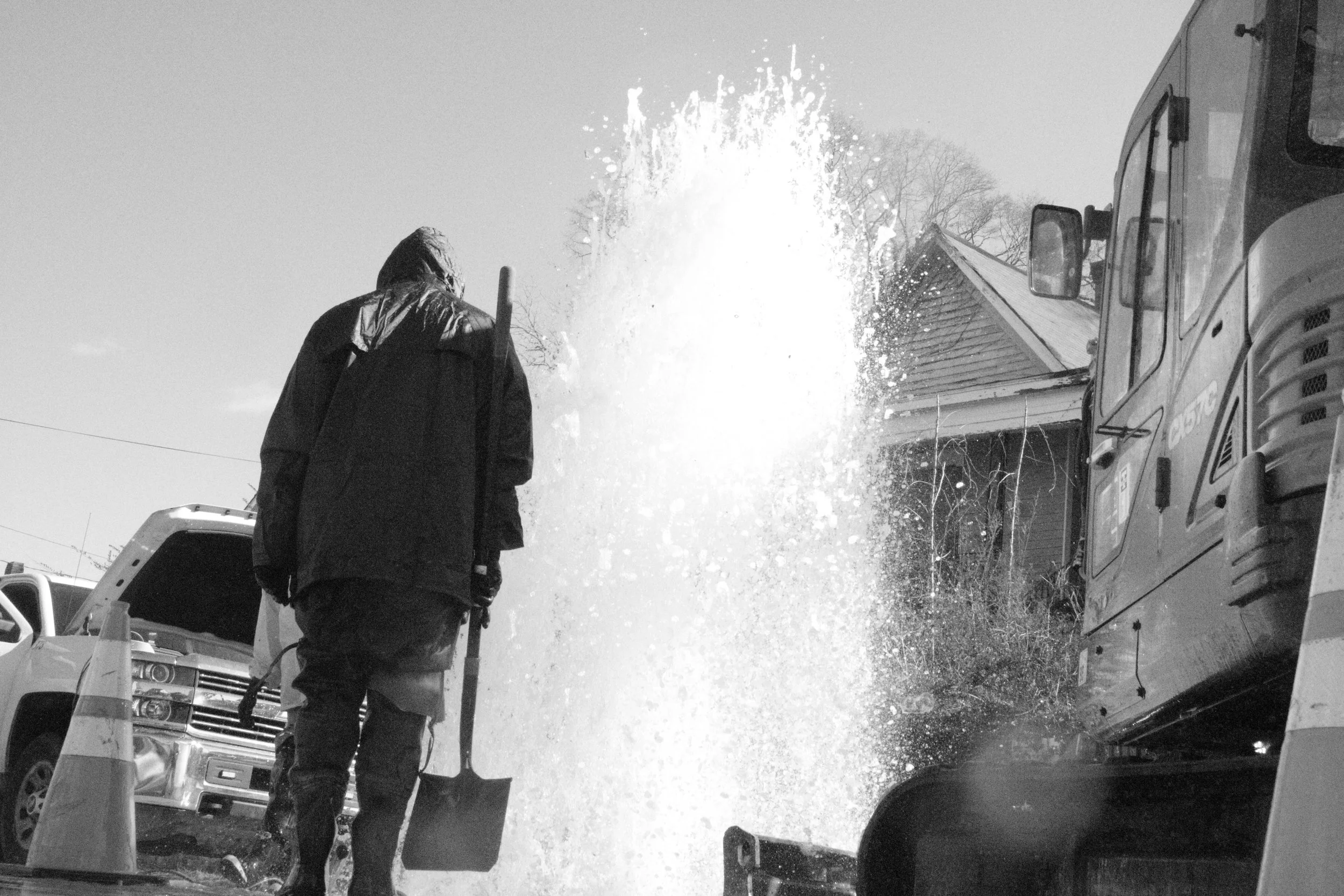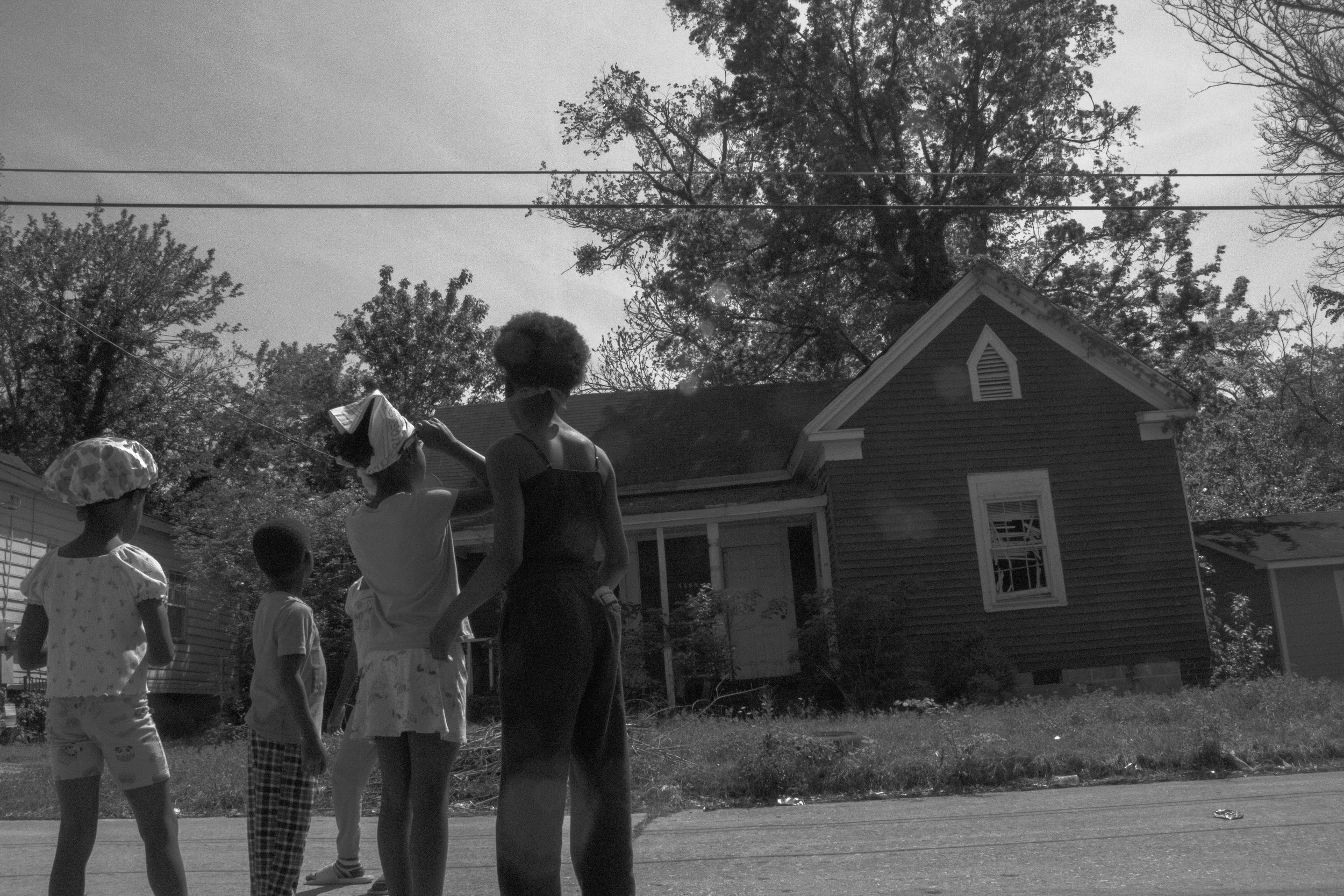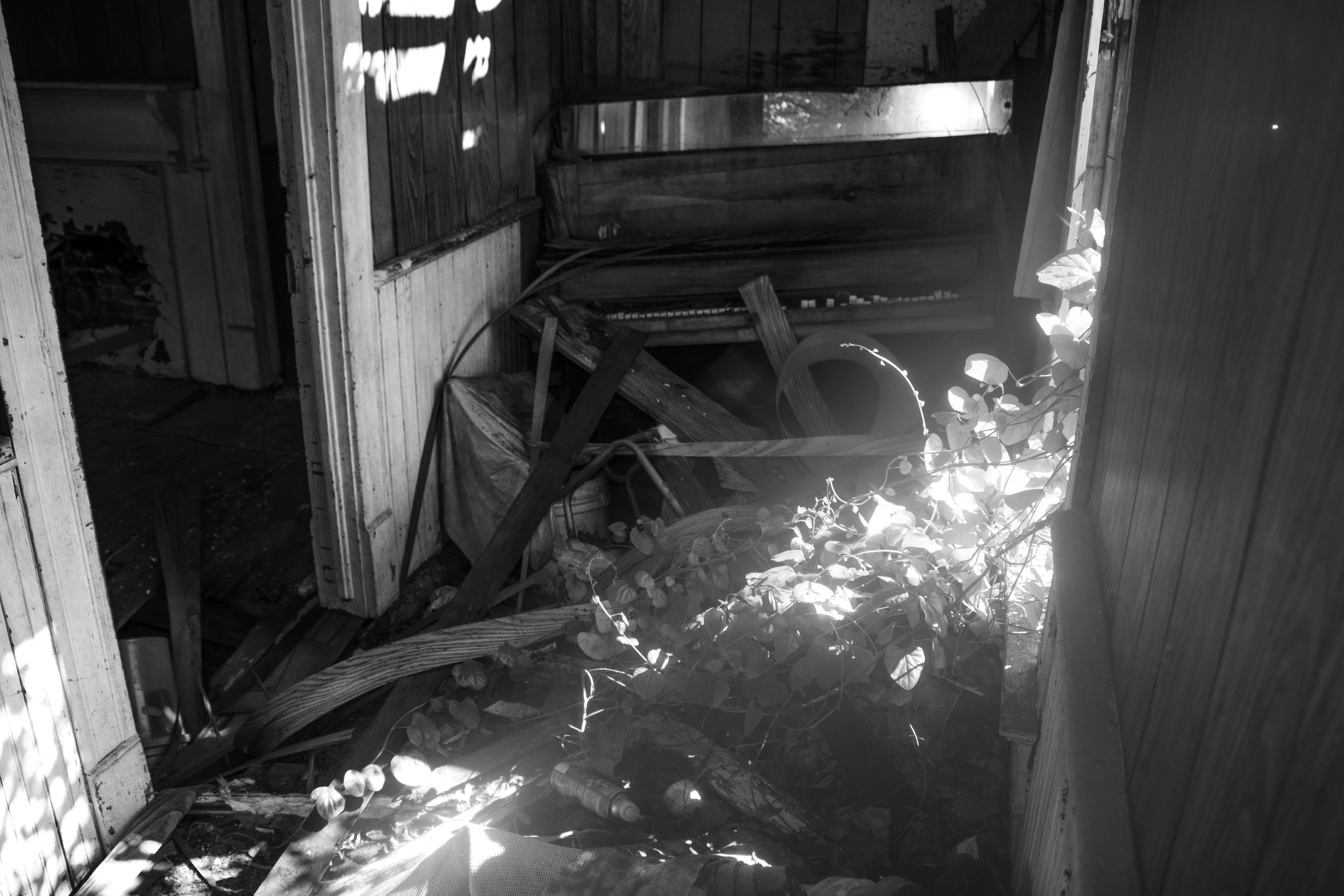
In the 1960s, the thriving neighborhood of Pleasant Hill was split in two by the construction of I-75. Over 100 homes were demolished in its construction, with 20-foot walls erected on each side of the historic black neighborhood. 60 years later on the east side of the highway, with so many homes abandoned, time destroys what the city has not. Residents today feel their pleas for city interference are drowned out by the passing cars. This is life beyond the wall.

Six-year-old Jayceon plays basketball April 18, 2024, in Macon, Georgia, next to the I-75 wall that splits Pleasant Hill in two. Jayceon practices his basketball skills daily after school, just under the I-75 wall.

Macon Water Authority workers attend to a burst pipe repair on Monroe Street in Macon, Georgia Jan. 19, 2024. Neighbors in Pleasant Hill report this is the first time they have seen city workers attending to the neighborhood in a long time. “I’ve seen you walking around with that camera, taking photos of the houses we’ve been calling about,” says Pleasant Hill resident Susan Chase. “Are you from the city?”

Ivy grows upon a decade-old sign for the Blight Removal Project and the abandoned lot behind it March 28, 2024, in Macon, Georgia. City officials have abandoned the Blight Removal Project by Project Initiative, like much of Pleasant Hill. In 2021, the mayor’s office started the Blight Fight Initiative, which has since knocked down over 700 unsafe homes, but residents on the east side of Pleasant Hill feel ignored by the city. Only four of the 700 homes were in the neighborhood.

A look at the bustling home next door, through the window of one of three homes on Second Avenue the city has deemed uninhabitable March 3, 2024, in Macon, Georgia. This juxtaposition of life and decay is an unfortunate reality for Eastside residents, who believe the city is deliberately avoiding addressing the situation in Pleasant Hill. “I’ve called and called the city about these houses,” says longtime resident Susan Chase. “And you just can’t get them to do anything about it.”

Neighborhood children watch the eclipse April 8, 2024, in Macon, Georgia, above one of the uninhabitable homes on Second Avenue. Tax assessors have deemed over 10% of the estimated 200 housing units on the community's east side in poor and unsafe condition. These properties continue to devalue occupied neighborhood homes, and residents strongly believe it's not a coincidence. “A lot of these historic houses have a lot of value to them,” says Rudy Mendes. “Destroyed value, but value.”

Local investor ex-Sheriff Ryan Cravens discusses the renovations needed for one of his properties in Pleasant Hill April 16, 2024, in Macon, Georgia. Due to city ignorance, Cravens believes it is, unfortunately, up to individual investors to buy neighborhood properties and make them habitable. “I just want to help people, you know… If crime doesn’t have a place to be housed, a lot of these crimes are not going to happen.” Cravens believes that Land Bank Authority auctions are actually detrimental, saying, “People buy these homes for three-five thousand dollars, sit on it forever, and hold it as an investment.” Cravens also laments investors buying and selling homes in uninhabitable conditions without making any improvements. “This reduces the value of all the [houses] on the block.” Ironically, Cravens had already listed the home for sale at $32,000, almost twice the price it was purchased for, still in uninhabitable condition.

The view through the open doorframe of a home labeled as uninhabitable by Macon tax assessors April 25, 2024, In Macon, Georgia. The Pleasant Hill home is valued at just under $5,000 and was sold at an auction by the city for $7,000. A steep price for any local looking to own their first home, as it also needs demolition. But where some see roadblocks, others see dollar signs. Pleasant Hill is just a short walk from Mercer University, so this $5,000 home was listed with a $50,000 price tag. Residents believe this to be the seeds of gentrification taking root in Pleasant Hill.

Tonja Khabir cleans off the sidewalk in front of her home in Pleasant Hill April 1, 2024, in Macon, Georgia. Khabir built the home in 2021, hiring a company that demolishes blighted homes and builds new homes in their place. Tonja is also a consultant for the Pleasant Hill Neighborhood Organization (PHNO), a local nonprofit seeking to make fundamental changes and improvements in historic Pleasant Hill. PHNO recently received $1.5 million in grants to repair the damage and mitigate the impact of the highway by focusing on housing, local business development and cultural preservation, as well as reconnecting Eastside Pleasant Hill to its other half across the highway. “We are excited to continue the important work of neighborhood sustainability in our beloved Pleasant Hill,” says Tonja Khabir. “Its rich history and culture deserve preservation and protection. This grant will provide the necessary capacity to implement this equitable development in our community.”

Seven-year-old Khaza, claiming he can jump higher than the I-75 wall, leaps as high as he can on his trampoline April 25, 2024, in Macon, Georgia. Khaza is one of many residents of bustling Pleasant Hill. These residents want one thing to be absolutely clear. Despite blight, city negligence, deliberate devaluation, and gentrification, there is life beyond the wall.